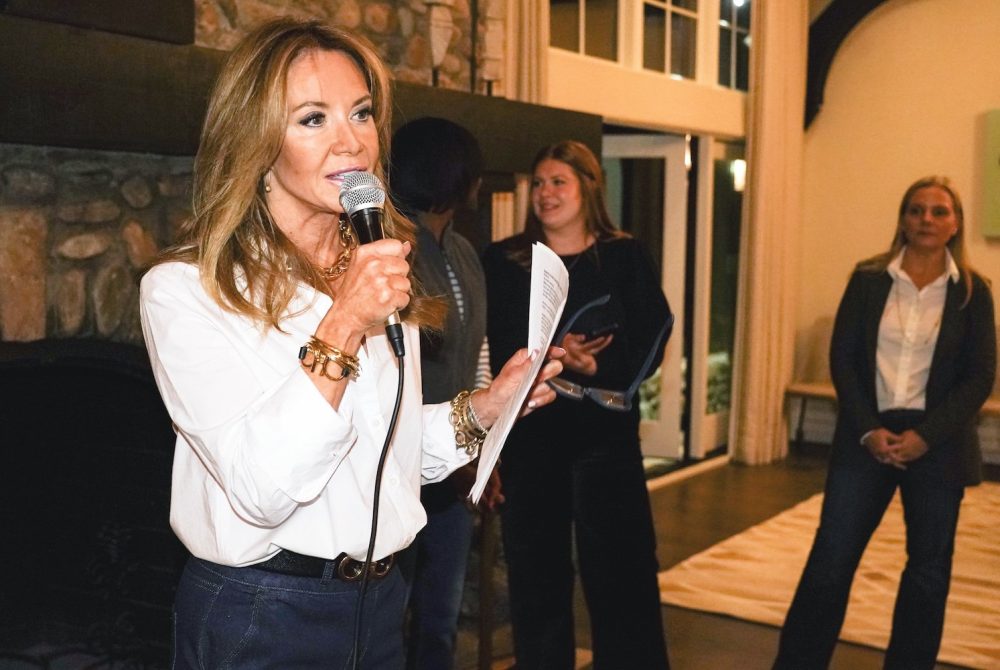
Roughly two and a half years ago, Inspire Access founder and CEO Patrice King Brickman found out that a business she was about to invest in through her venture capital firm, Inspire Capital, was also receiving money from a donor-advised fund (DAF). “I was intrigued that a donor-advised fund could invest in a for-profit business,” she said.
Then, when she learned that there was more than $200 billion “sitting complacent” in DAF accounts, King Brickman decided to channel at least some of that money to a cause that her for-profit company was already serving: addressing the racial wealth gap by investing in start-ups founded and led by women and people of color.
The existence of DAFs is a decidedly mixed blessing. On the one hand, proponents argue they can make organized charitable giving more accessible to a more modest class of donors who lack the means to set up a foundation. On the other, they lack the private foundation’s annual 5% payout requirement, meaning DAF holders can, if they choose, get an immediate tax deduction for their gifts but never actually move the money to nonprofits. And if that money does move out of the account, the DAF can serve to obscure the donor’s identity.
King Brickman said she’s “confounded” by the fact that DAF holders aren’t required to pay out part of their principal every year, “but that’s what exists, that pile of money is growing, and there’s a lot of opportunity out there.”
To tap into that opportunity, DAF holders — along with foundations and people who want to make an investment from their personal funds — can make a donation to Inspire Access (which is a 501(c)(3) entity) and designate how the funds are to be invested, whether via a loan or other arrangement, in a start-up founded by a woman or person of color. Proceeds from those investments can either be reinvested in the start-up or go back into the DAF — essentially, as Inspire Access puts it, the aim is to let the DAF donor play “a more direct role in deciding how those funds are invested.”
Inspire Access funds are currently flowing to start-ups that have already been vetted by, and received money from, King Brickman’s for-profit venture. In addition, she said, two donors so far have used Inspire Access to move investment money to minority-owned start-ups that those donors previously vetted themselves. “One day, I hope to go out looking for all sorts of amazing underrepresented founders,” she said, but given that the fund is in its early days, she is focusing on keeping the work donor-driven. The effort seems to be meeting with success. King Brickman said that Inspire Access has attracted roughly $1 million in commitments from donor/investors including the David and Carrie Marriott Charitable Fund, the Sean and Alisha Griffey Charitable Family Fund, and a number of individuals.
Typically, DAF money is channeled to 501(c)(3) organizations. But it can also go toward mission-aligned impact investments, including in for-profit enterprises. Moreover, while many large DAF sponsors offer impact investing options for the money sitting in DAF accounts, the majority of that $200 billion-plus is still invested traditionally.
As to the ethics of using tax-deductible money to invest in potentially profit-making entities, King Brickman has a practical response. “Number one, no one’s encouraging them [DAF holders] to mobilize that money. Number two, that money is being invested in something, right?” she said. Rather than keep the funds in one of the traditional vehicles where they will benefit, as she put it, “a white guy somewhere, we could get it out of that model to go out into the world to do good.”
Shifting the power dynamic
Inside Philanthropy has previously reported on other nonprofit/for-profit hybrid efforts to address race-based gaps in home ownership and the ownership of commercial properties. Anyone who keeps track of racial inequities in this country won’t be surprised to learn there’s also a substantial disparity in venture capital money being moved to startups headed by white men versus companies founded by women or people of color.
According to the corporate consulting firm McKinsey & Company, “In 2022, Black and Latino founders received only 1% and 1.5% respectively of total U.S. venture capital funding. Women-founded teams received 1.9% of VC funds, and only 0.1 percent of VC funds went to Black and Latino women founders.” This disparity exists despite the fact that Black women entrepreneurs in particular are launching businesses at a higher rate than white men. However, only 3% of those businesses survive to maturity — and a lack of capital is one of the main reasons they fail.
Inspire Access is “sector agnostic” in its choice of businesses to support, King Brickman said, nor does its due diligence include inquiring about wages or working conditions at the companies it supports, though the fund won’t invest in any company that affiliates with an organization in the Southern Poverty Law Center’s Hate List. This lack of attention to wages and working conditions may be off-putting to donor/investors who are more class-focused. At the same time, it may well be true that efforts to address racial wealth disparities will only succeed when they’re tackled at the level of wealth creation.
“I think you could do workforce development and education all day long, and we do that, and it’s kind of BS,” said King Brickman. “We are not going to shift the power dynamic in this country by doing that.”
